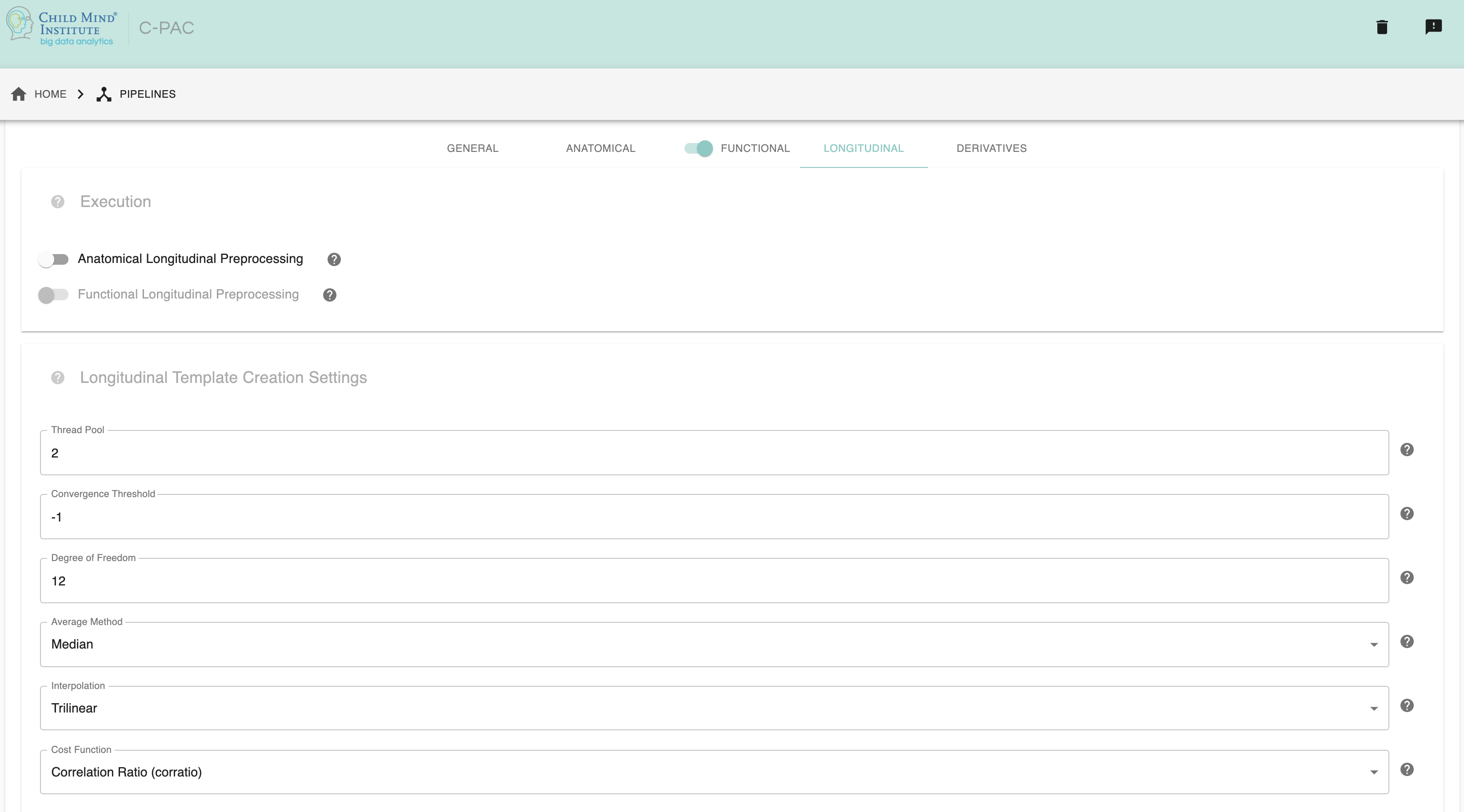Longitudinal Preprocessing#
Background#
Longitudinal preprocessing pipeline is designed to process longitudinal data with two or more sessions. Based on Reuter et al. 2012, all secions of subjects are first preprocessed independently and then a within-subject template is created by averaging all sessions of the subject. Subsequently the within-subject template is registered to standard space and all sections are then registered to the longitudinal template in standard space.
Configuring CPAC to Run Longitudinal Preprocessing Pipeline#

Longitudinal - [On, Off]: Run longitudinal preprocessing pipeline or not. Default is Off.
Average Method - [string]: Method to average longitudinal template. Default is median.
DOF - [integer]: Transform degree of freedom in flirt. Default is 12.
Interpolation - [string]: Interpolation in flirt. Default is trilinear.
Cost Function - [string]: Cost function in flirt. Default is corratio.
Thread Pool - [integer]: Number of threads in a thread pool. More threads can speed up the longitudinal template creation process. Default is 2.
Convergence Threshold - [integer]: Convergence threshold of longitudinal template. Default is -1, which uses numpy.finfo(np.float64).eps.
Configuration Without the GUI#
The following nested key/value pairs will be set to these defaults if not defined in your pipeline configuration YAML.
longitudinal_template_generation:
# If you have multiple T1w's, you can generate your own run-specific custom
# T1w template to serve as an intermediate to the standard template for
# anatomical registration.
# This runs before the main pipeline as it requires multiple T1w sessions
# at once.
run: Off
# Freesurfer longitudinal template algorithm using FSL FLIRT
# Method to average the dataset at each iteration of the template creation
# Options: median, mean or std
average_method: median
# Degree of freedom for FLIRT in the template creation
# Options: 12 (affine), 9 (traditional), 7 (global rescale) or 6 (rigid body)
dof: 12
# Interpolation parameter for FLIRT in the template creation
# Options: trilinear, nearestneighbour, sinc or spline
interp: trilinear
# Cost function for FLIRT in the template creation
# Options: corratio, mutualinfo, normmi, normcorr, leastsq, labeldiff or bbr
cost: corratio
# Number of threads used for one run of the template generation algorithm
thread_pool: 2
# Threshold of transformation distance to consider that the loop converged
# (-1 means numpy.finfo(np.float64).eps and is the default)
convergence_threshold: -1
References#
Martin Reuter, Nicholas J.Schmansky, H. Diana Rosas, Bruce Fischl. Within-subject template estimation for unbiased longitudinal image analysis. Neuroimage. 2012 July 16; 61(4): 1402–1418. doi:10.1016/j.neuroimage.2012.02.084.